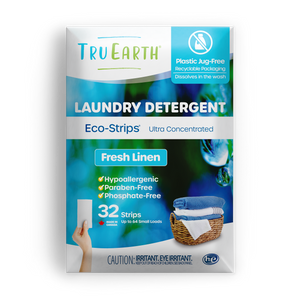Knowing how to manage allergic reactions to detergents is essential for anyone facing skin irritations. In this in-depth guide, we will explore the duration of allergic reactions, the possible symptoms, and practical strategies for finding relief.
Understanding the nuances of detergent allergies empowers individuals to make informed choices for their skin health.

The Basics of Allergic Reactions
Allergic reactions are the body's defensive response to substances it perceives as harmful, even if they are generally harmless. When exposed to an allergen, the immune system may overreact, triggering symptoms that range from mild to severe.
Common signs include itching, redness, hives, and swelling. In more severe cases, allergic reactions can lead to difficulty breathing, swelling of the face or throat, and a drop in blood pressure, necessitating immediate medical attention.
Various substances, including detergents, can trigger allergies. Understanding the basics of allergic reactions helps individuals identify and manage symptoms effectively, leading to better overall health and well-being.
Factors Influencing Reaction Duration
Several factors can influence the duration of an allergic reaction. Consider these elements, including the type and severity of the allergic response, individual sensitivity, and the specific detergent ingredients triggering the reaction.
A nuanced understanding of these factors will help individuals navigate their unique situations. Recognizing these influencing factors provides a more personalized perspective on the potential duration of allergic reactions.
Immediate Relief Measures
When confronted with an allergic reaction, swift action is paramount in reducing discomfort. Beyond the initial steps of washing the affected area with mild soap and water or applying cold compresses, individuals can enhance their relief by avoiding scratching to prevent further irritation.
Over-the-counter antihistamines like diphenhydramine can alleviate symptoms like itching and swelling. These medications block histamines, the chemicals responsible for allergic reactions, providing an extra relief layer.
Following recommended dosage guidelines are key, and a healthcare professional should be consulted if symptoms persist or worsen. By incorporating these measures, individuals address symptoms promptly and gain a more comprehensive understanding of managing allergic reactions effectively.
Duration of Allergic Reactions
Gain a comprehensive understanding of the timeline associated with allergic reactions to detergents. Explore the various phases of a response, from immediate symptoms post-exposure to potential lingering effects.
A detailed timeline helps individuals gauge the duration of their allergic responses, fostering awareness and preparedness. Recognizing the timeline of allergic reactions aids individuals in managing expectations and planning appropriate responses.
Long-Term Solutions
Long-term solutions for managing allergic reactions to detergents involve making informed lifestyle adjustments. Individuals may opt for alternative detergents specifically formulated for sensitive skin or choose hypoallergenic products to minimize the risk of allergen exposure.
Additionally, maintaining proper skin hydration with fragrance-free moisturizers can help strengthen the skin's natural barrier, reducing its susceptibility to irritants. Adopting these long-term strategies contributes to a more sustainable approach to managing allergic reactions and promoting overall skin health and comfort.
Seeking Medical Advice
When allergic reactions persist or escalate, seeking medical advice is essential for a comprehensive assessment and appropriate treatment. Medical professionals can conduct allergy tests to identify triggers and recommend solutions.
Dermatologists may prescribe topical corticosteroids or oral antihistamines to alleviate symptoms in severe cases. Consulting a healthcare professional ensures a personalized and practical approach to managing allergic reactions, promoting short-term relief and long-term skin health.
Preventive Measures
Preventive measures play a pivotal role in managing allergic reactions to detergents. Individuals can opt for hypoallergenic or fragrance-free detergents, reducing the likelihood of skin irritation. Conducting patch tests before using new products helps identify potential allergens, allowing for informed choices.
Wearing protective clothing like gloves while handling detergents can further minimize direct skin contact. These preventive measures empower individuals to proactively address potential triggers, creating a safer environment for those prone to detergent-related allergies.
Alternative Detergent Options
Consider using Tru Earth's detergent, renowned for its commitment to gentle yet effective cleaning. By avoiding harsh chemicals and fragrances, Tru Earth minimizes the risk of skin irritation, providing a soothing solution for individuals with specific sensitivities.
With a formula crafted with natural ingredients, Tru Earth stands out in catering to diverse skin needs, offering an eco-friendly and skin-friendly approach to laundry care. Explore alternatives to discover a detergent that perfectly aligns with your skin's requirements, ensuring an irritation-free and environmentally conscious laundry routine.
The Role of Environmentally Friendly Detergents
Environmentally friendly detergents contribute to a healthier planet and can play a key role in managing allergic reactions. Many of these detergents boast formulas free from harsh chemicals, synthetic fragrances, and dyes, making them suitable for individuals with sensitive skin.
Additionally, eco-friendly detergents often come in recyclable packaging, promoting sustainability. By incorporating environmentally friendly detergents into their laundry routine, individuals can reduce their environmental impact and minimize the risk of allergic reactions, fostering a holistic and eco-conscious approach to laundry care.

Safeguarding Your Skin
Managing allergic reactions to detergents involves a multifaceted approach encompassing an understanding of symptoms, duration, effective relief, and preventive strategies.
This comprehensive guide equips readers with the knowledge to make informed choices, ensuring an effective laundry routine tailored to individual sensitivities and broader environmental concerns. Recognizing the complexities of detergent allergies enables individuals to approach their laundry routine confidently and fully.


